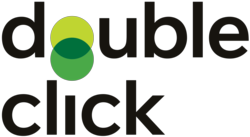 It’s ironic that a company founded in Atlanta wound up breaking journalism.
It’s ironic that a company founded in Atlanta wound up breaking journalism.
Doubleclick was launched in early 1995, in Atlanta, but moved to New York shortly thereafter. It was bought by Google a decade later.
Doubleclick sold ads based on intrinsic targeting. The system used cookies to learn things about you, then buyers took out ads aimed directly at what you were doing. This led to things like a mother being offered cookie recipes at a gun site, or a gun owner being shown a magnum when he’s looking into champagne vacations.
These kinds of ads are intrusive. They invite blocking. They’re irrelevant to where your head is right now and their performance is thus very, very poor. But this doesn’t matter to an advertiser who can buy 100 such ads for what a specific web site on, say, guns might ask for a single impression. They get it back on volume.

Journalism was built by extrinsic targeting. You could tell a car dealer in Atlanta that X number of cars who saw his newspaper ad would pass by his place of business each day, which would result in Y additional sales, money that more than paid for the ad. The newspaper had data to illustrate this point.
By pushing intrinsic targeting Google, and those who have copied it, have denied content the money it needs to create more content.

I’m not saying old-fashioned newspaper ads were not a bother, but there was a reason people paid big money for the Sunday paper, and it wasn’t just about the funnies. The Sunday paper had a lot of ads. It weighed several pounds. It cost more to get those several pounds onto your doorstep (or through a newsstand) than it did the daily paper. People were actually paying more to see more ads.
Now that Google has destroyed the content industries, however, Google has a problem. The stock has gone flat, and it’s down for all of 2016. Growth has slowed, and margins are down. The stock is still selling for nearly twice the market averages, almost 32 times last year’s earnings, but when fashions change it’s going to plunge. Selling off money-losing divisions like the robot company formerly called Boston Dynamics won’t solve the problem. Neither will trying to pay people to hold the stock, which is what Apple started doing under Tim Cook. (Apple now sells for 12 times last year’s earnings.)
Google has to start spending money on content.

This will be difficult, because Pandora’s Box is already open. Lots of other companies, like Facebook, can now sell intrinsic targeting, and they can actually do it better, because people rather than companies are creating Facebook’s content. Facebook is even getting ahead of it with things like Facebook Live, which turns content into an event that can draw a sufficient audience to make intrinsic targeting work. As a result, investors are now willing to pay more than twice as much for Facebook’s earnings as Google’s.
The problem with Google becoming a content company is that Google becomes responsible for the content. Not just legally responsible, but financially. Google has to figure out what people want, and find a way to give it to them. Machines can’t do this. Algorithms can’t do this. Only people know people. The model just doesn’t scale the way Google would want.

Defining up-front how artists will get their content back would bring an enormous rush of content Google’s way. It would change the content creation game, tilting the field toward artists decisively. This would also benefit Google, by allowing a continual recycling of its content investment and, as a result, the creation of more content.
The risk is that Google gets stuck with a lot of content that can’t make up its costs, but hopefully Google will decide where to invest with professional help, and over time this should mean fewer losing investments. Google could also sell rights to content that didn’t make back its investment. That would be a business. Even the losers are a small price to pay for the general increase in content generated by the new model.

Corporate investments for movies and TV shows can be applied to publications that seek defined audiences. Just as a movie may not pay off for three years, so too with a publication.
Google will want to get its money out and get out of the way because it won’t want to deal with the non-economic risks of owning content. Is the content good? Is it controversial? Those are questions for publishers, and producers, not for Google. Having a defined way to get out of the way will help it reduce those risks.
Doing this with publishers will also increase Google’s incentive to work on making defined audiences profitable again. In the end, that’s what has to happen, for Google to continue to prosper. Google, and the other companies that have digitized the world’s markets, have to find ways to create new jobs for those who aren’t engineers or dot-com entrepreneurs, for their own political survival.










thanks……………
thanks……………
Its amazing .. fabulous and impressive as well. I ‘m going to share this post with my friends. Thank you so much. Keep it up !!………………….
Its amazing .. fabulous and impressive as well. I ‘m going to share this post with my friends. Thank you so much. Keep it up !!………………….
Wow! Such an amazing and helpful post this is. I really really love it. It’s so good and so awesome. I am just amazed.
Wow! Such an amazing and helpful post this is. I really really love it. It’s so good and so awesome. I am just amazed.